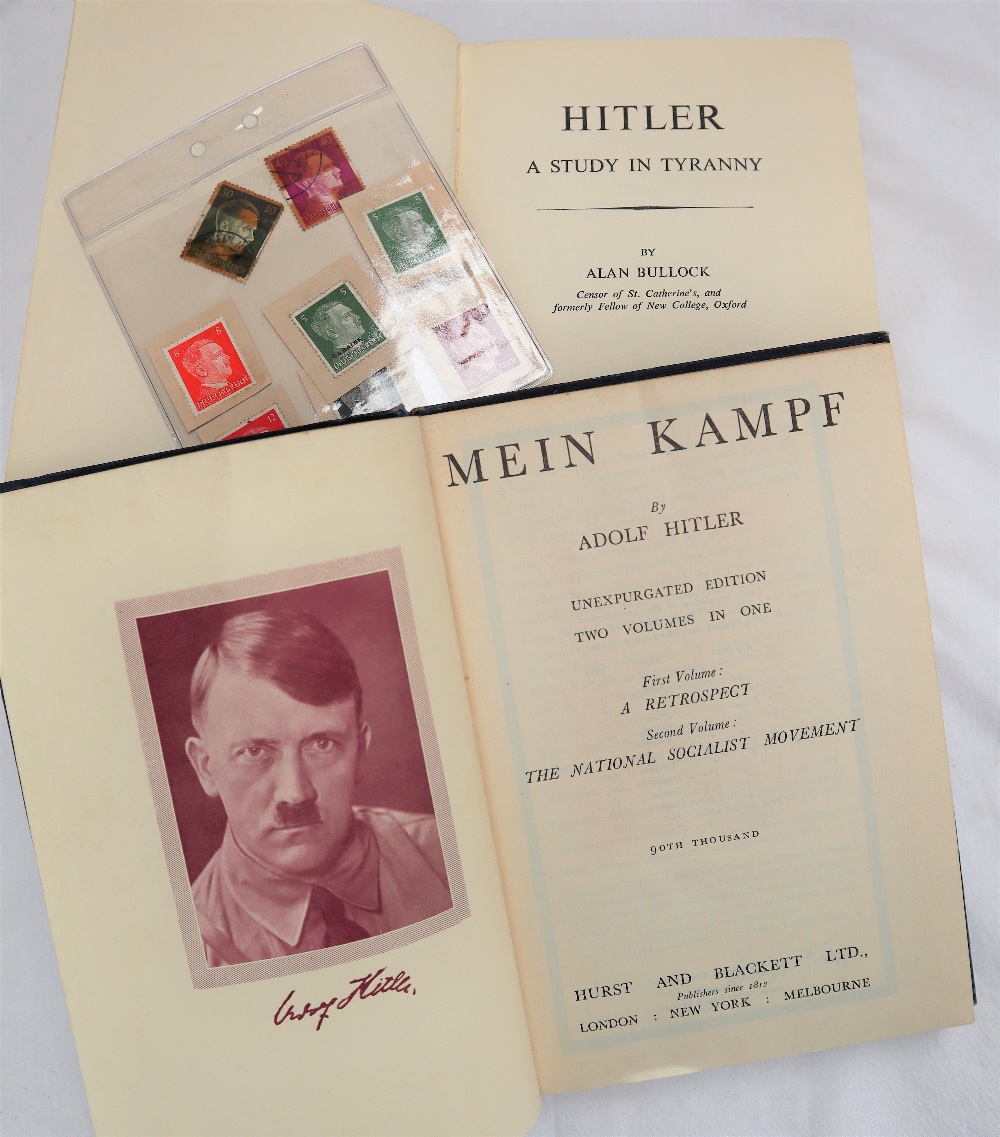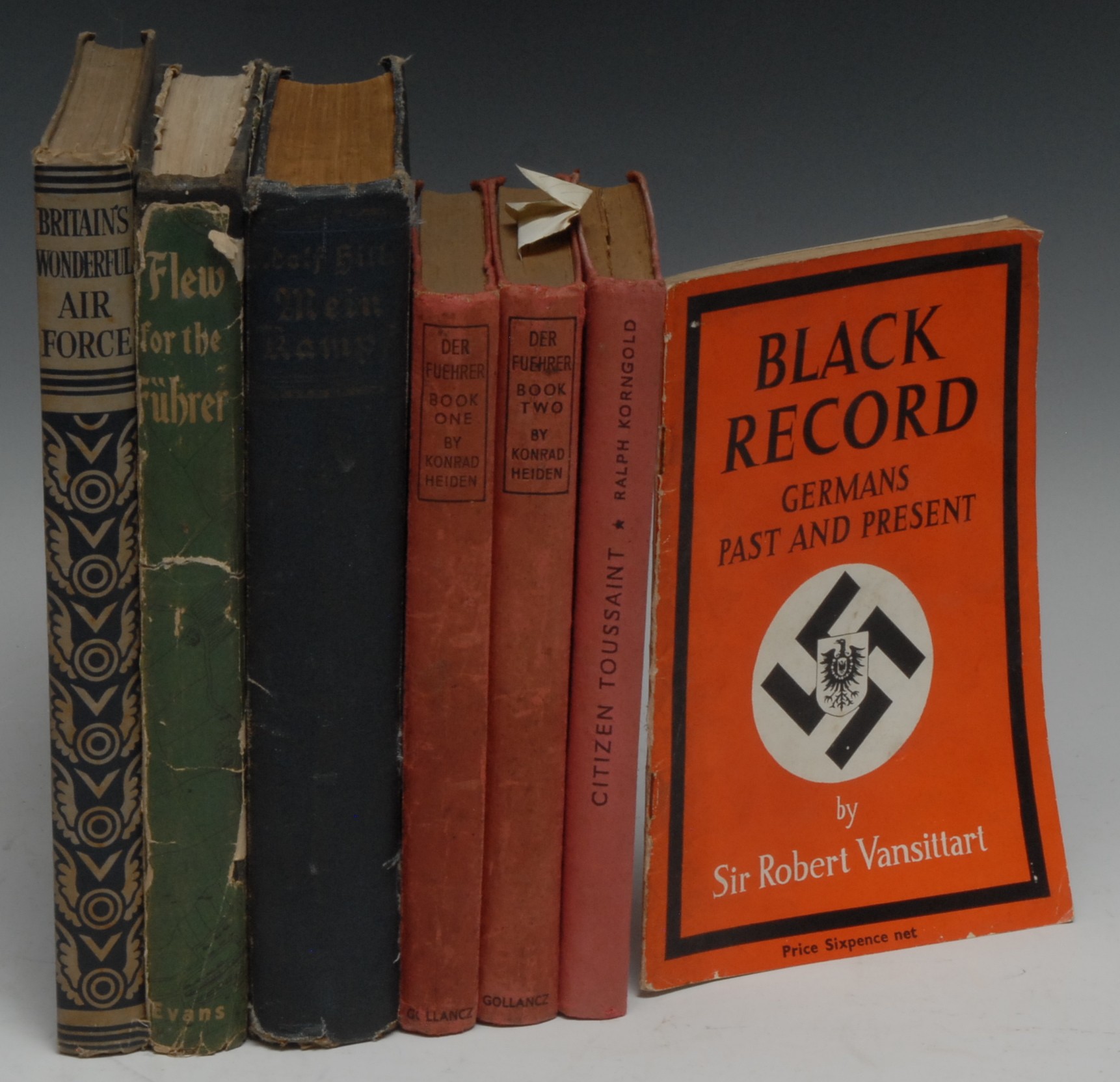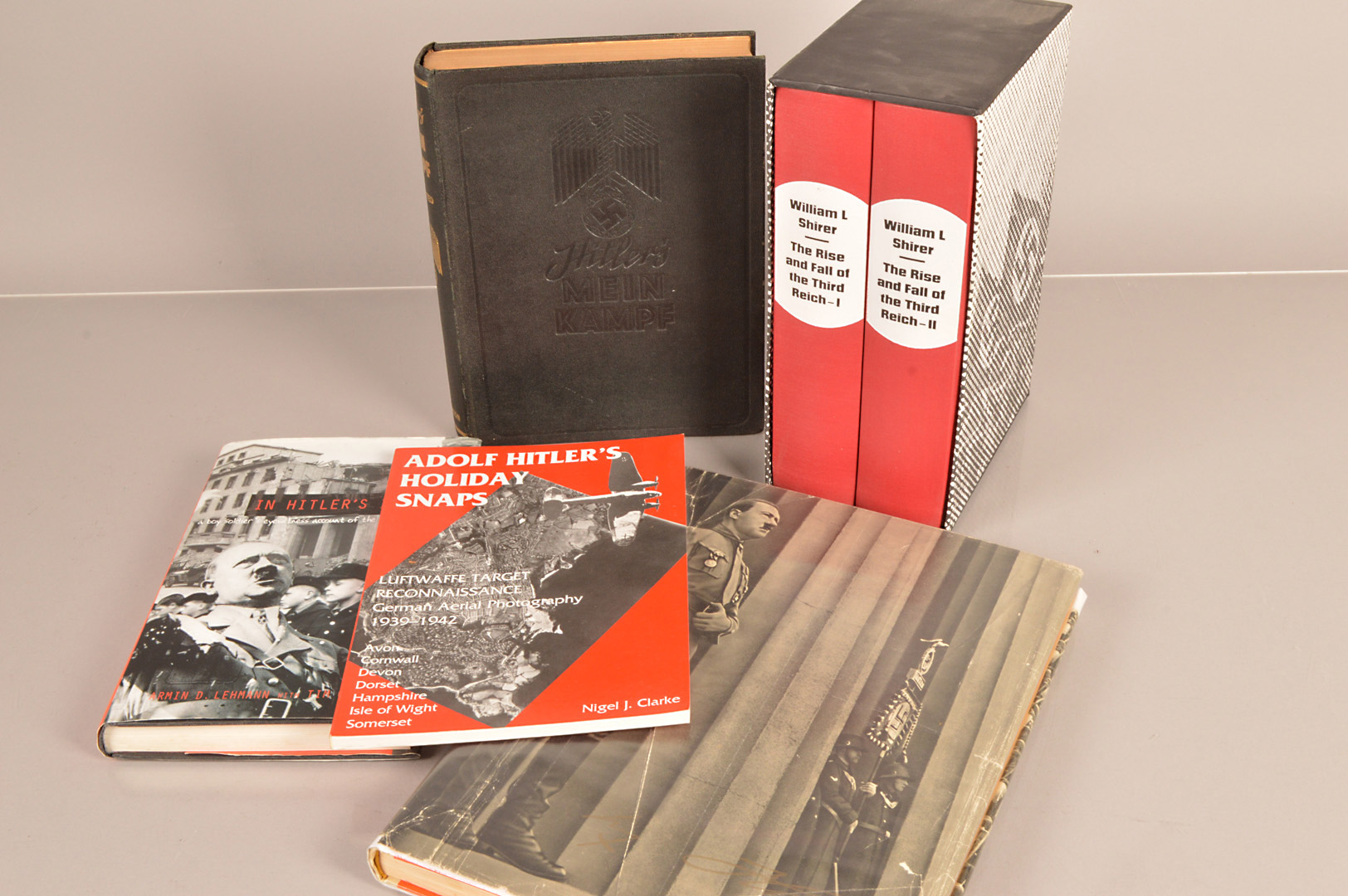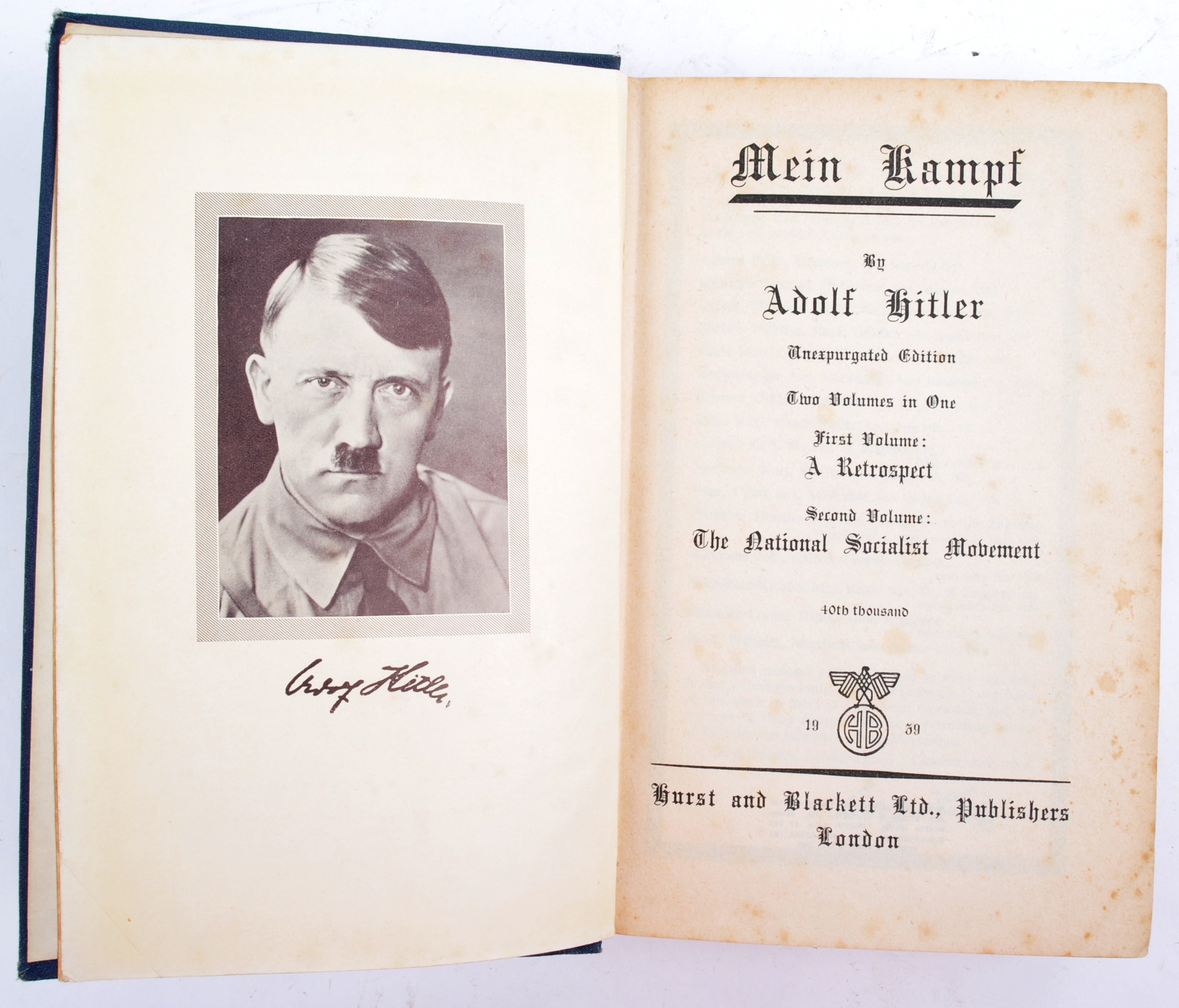2 volumes. [iii]-xvi, 392 + [32] ad; xi, [1], 354 + [2] ad pp. Frontispiece portrait of the author from a photograph. 23x15.5 cm (9x6"). Vol. I in original cloth-backed red boards lettered in white; Vol. II in original red cloth lettered in gilt. First Editions, first issues. First edition of what was, tragically, one of the most influential books of the 20th century, widely owned, though perhaps not so widely read, providing Adolf Hitler's blueprint for the political and social future of Germany. The half-title of the first volume is not present. Ink ownership signature of Karl Russcher(?) to Vol. II front pastedown and half-title. Printing & the Mind of Man 415 describes the book at some length: “Political creeds as the basis for new religions have usually spelt danger for humanity. When they are distilled from the half-baked prejudices harboured by the more reactionary section of a nation not particularly noted for political enlightenment, they spell disaster... In November 1923 came the Nazi Putsch in Munich. This, although abortive, had, in its sequel, much to do with Hitler’s rise to national stature. The ill-advised prominence given to his trial, the ineffectiveness with which it was conducted and the dignified nature of his detention in the Fortress of Landsberg transformed his status from that of a seedy local agitator to a potential national saviour. His detention, moreover, gave him the opportunity to dictate to his associate Rudolf Hess the contents of the first volume of the testament and programme of a political gangster which he called Mein Kampf - ‘My Struggle’. Although it contained much that was shocking to many Germans, its main sentiments were widely shared in central Europe. A pseudo-mystic racial theory, totally unrelated to fact, was made to support pan-Germanism, anti-semitism, militarism and ultra-nationalism, the combination of which was to be implemented by the unrestricted use of power as interpreted through the mentality of a superstitious bully. This programme, with a detailed account of what it would entail nationally and internationally, is stated with complete frankness in the two volumes of Mein Kampf... Hitler had a right to be surprised at their violent reaction to the attack on Poland. It was all in Mein Kampf, but they just could not believe it.”
2 volumes. [iii]-xvi, 392 + [32] ad; xi, [1], 354 + [2] ad pp. Frontispiece portrait of the author from a photograph. 23x15.5 cm (9x6"). Vol. I in original cloth-backed red boards lettered in white; Vol. II in original red cloth lettered in gilt. First Editions, first issues. First edition of what was, tragically, one of the most influential books of the 20th century, widely owned, though perhaps not so widely read, providing Adolf Hitler's blueprint for the political and social future of Germany. The half-title of the first volume is not present. Ink ownership signature of Karl Russcher(?) to Vol. II front pastedown and half-title. Printing & the Mind of Man 415 describes the book at some length: “Political creeds as the basis for new religions have usually spelt danger for humanity. When they are distilled from the half-baked prejudices harboured by the more reactionary section of a nation not particularly noted for political enlightenment, they spell disaster... In November 1923 came the Nazi Putsch in Munich. This, although abortive, had, in its sequel, much to do with Hitler’s rise to national stature. The ill-advised prominence given to his trial, the ineffectiveness with which it was conducted and the dignified nature of his detention in the Fortress of Landsberg transformed his status from that of a seedy local agitator to a potential national saviour. His detention, moreover, gave him the opportunity to dictate to his associate Rudolf Hess the contents of the first volume of the testament and programme of a political gangster which he called Mein Kampf - ‘My Struggle’. Although it contained much that was shocking to many Germans, its main sentiments were widely shared in central Europe. A pseudo-mystic racial theory, totally unrelated to fact, was made to support pan-Germanism, anti-semitism, militarism and ultra-nationalism, the combination of which was to be implemented by the unrestricted use of power as interpreted through the mentality of a superstitious bully. This programme, with a detailed account of what it would entail nationally and internationally, is stated with complete frankness in the two volumes of Mein Kampf... Hitler had a right to be surprised at their violent reaction to the attack on Poland. It was all in Mein Kampf, but they just could not believe it.”














Testen Sie LotSearch und seine Premium-Features 7 Tage - ohne Kosten!
Lassen Sie sich automatisch über neue Objekte in kommenden Auktionen benachrichtigen.
Suchauftrag anlegen